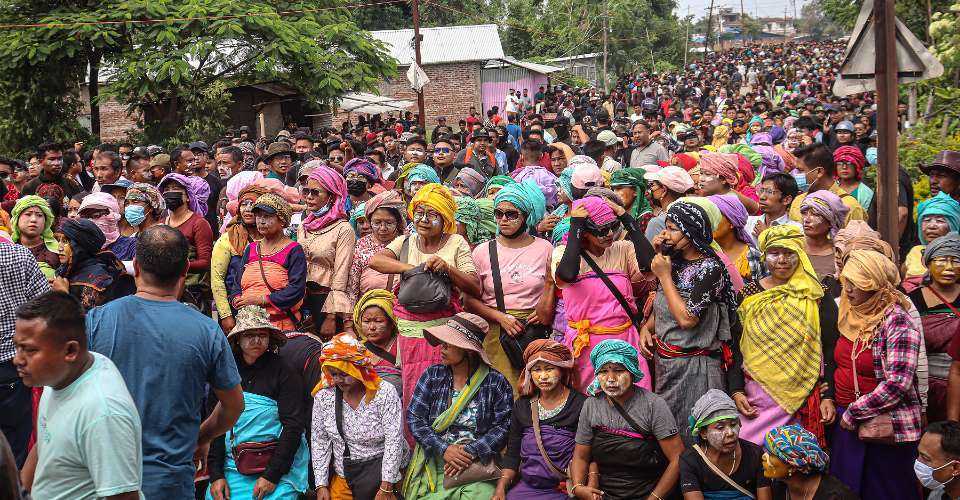
A Church leader has condemned a claim by the leader of a Hindu organization that Christian churches are at the center of the drug trade in north-eastern India which shares borders with the world’s largest opium producer — Myanmar.
“The drug business is done on a large scale by the churches, which is destroying our culture,” said Surendra Kumar Jain, international joint general secretary of the Vishwa Hindu Parishad (World Hindu Council) at an event in Assam, the biggest state in north-eastern India.
“We will join hands with the government and will start a campaign to make the northeast region drugs-free,” the Hindu leader said on Oct. 27, while inaugurating a computer center in Dima Hasao in Assam’s Haflong district.
The comments drew an angry response from Christians, who said Jain was attempting to create divisions among communities in the region.
“The Christian community in the northeast are shocked and dismayed over the allegations,” Reverend D.C. Haia Darnei, president of the United Christian Forum of Dima Hasao (UCFDH), told UCA News on Nov. 4.
“[He’s] tried to create divisions among peace-loving people,” he added.
Christian denominations had a meeting on Nov. 4 and have decided to file a police case against Jain, he said.
Darnei said Christians will submit a memorandum to the governor and Assam chief minister Himanta Biswa Sarma, who hails from the pro-Hindu Bharatiya Janata Party (BJP) of Prime Minister Narendra Modi.
Both the Vishwa Hindu Parishad and the BJP owe their allegiance to the ultranationalist outfit Rashtriya Swayamsevak Sangh (RSS), which is against the missionary activities of Christians in the South Asian nation.
The Indian Catholic Church is active in missionary activities in India’s eight northeastern states that are known for their huge tribal population.
Reverend Darnei said the UCFDH issued a statement on Oct. 29 condemning Jain’s allegations.
In the statement, the UCFDH affirmed the Catholic Church’s and other denominations’ commitment to promoting a drug-free society through biblical teachings.
According to the UCFDH, the Hindu organization’s leader’s claim was “derogatory and hateful.”
Samarjit Haflongbar, who earlier represented Haflong in the Assam assembly, said it would be inappropriate to single out churches for drug abuse in the northeast.
Nagaland, Mizoram and Meghalaya in the northeast are Christian-majority states.
Along with Nagaland and Mizoram, sectarian strife-torn Manipur shares a border with civil war-hit Myanmar.
In Manipur, Christians make up more than 41 percent of the state’s 3.2 million people. Tribal Christians in Manipur, who have been clashing with the majority Hindus in the state, have close ties with local people in Myanmar’s Chin state.
The communal strife in Manipur, which started on March 3, 2023, has so far claimed more than 230 lives and uprooted nearly 60,000 people, most of them Christians. The violence is still ongoing.
The BJP rules Manipur and has blamed the narcotics trade for the simmering communal tensions in the state.
After the Taliban came to power in Afghanistan, the hardline Islamic group discouraged opium cultivation in the Central Asian landlocked country.
However, poppy cultivation is booming in Myanmar, which has become the world’s top opium producer, overtaking Afghanistan in 2023, according to the United Nations.
source : uca news
